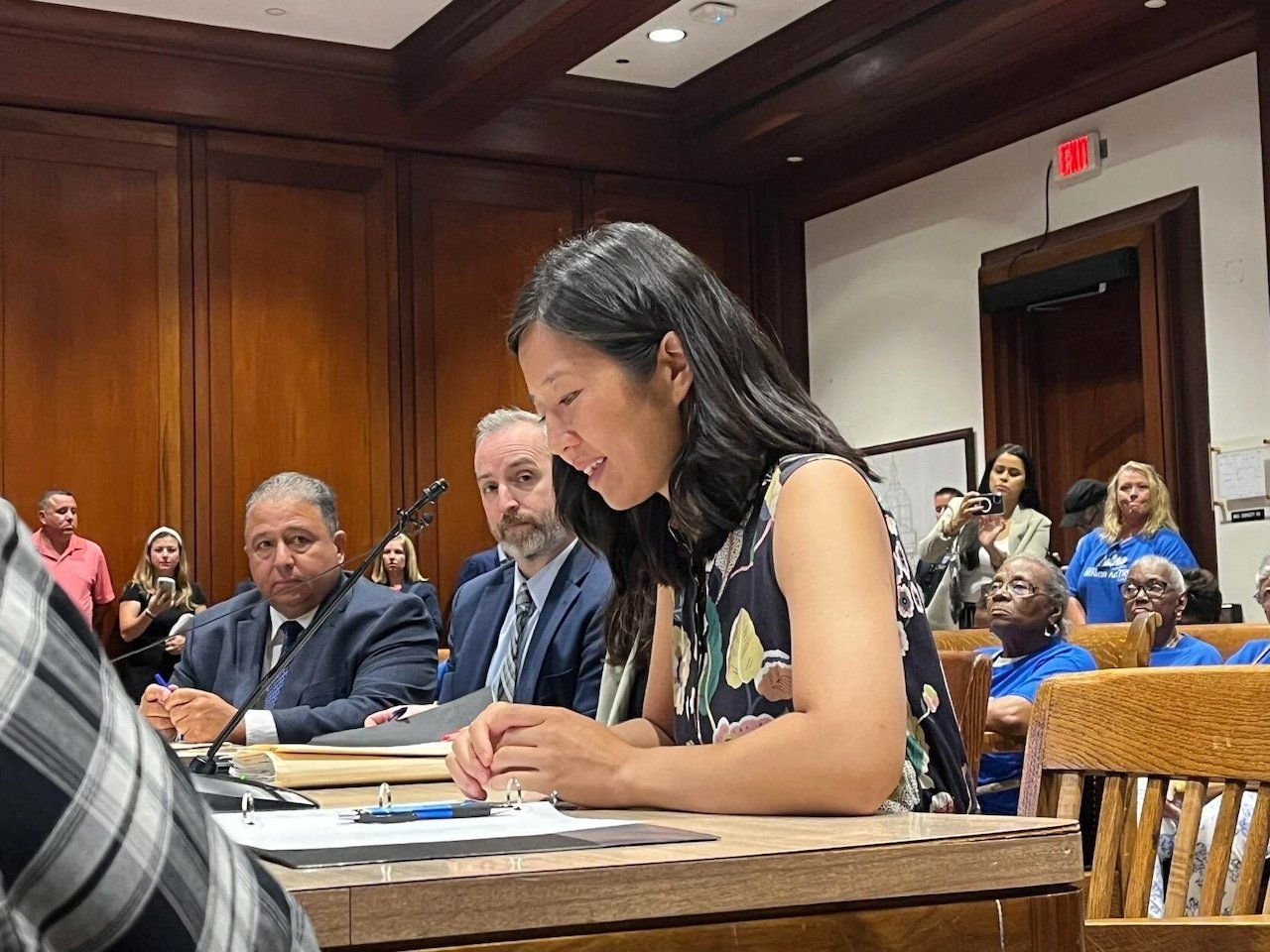Boston Mayor Michelle Wu isn’t giving up on her plan to shift the city’s property tax burden toward commercial property owners, saying she hopes lawmakers on Beacon Hill will yet give it the green light.
Lawmakers in the state House and Senate wrapped formal sessions last week without sending a completed version of Wu’s home rule petition to Gov. Maura Healey’s desk.
“If this does not happen, every single resident in the city of Boston will know that their taxes are going up because the Senate did not vote through that last step,” Wu said during an appearance on WGBH-FM’s “Radio Boston” program on Tuesday.
The tax reclassification made it past the majority-Democrat House after last-minute negotiations earlier in the week, with Wu agreeing to lower the amount of the shift and shorten the time during which it would apply, MassLive previously reported.
But the bill didn’t clear the state Senate, also controlled by Democrats, by the time lawmakers gaveled out at mid-morning on Aug. 1.
Wu pronounced herself “very disappointed” with the lack of action, telling The Boston Globe that “like so many other pieces of legislation, this one is too important for our residents for it to be over.”
In an email, a spokesperson for Senate President Karen E. Spilka, D-Middlesex/Norfolk, hit back at Wu, saying that while “blaming the Senate may be politically convenient for the mayor … it does nothing to improve a policy proposal that has been widely questioned by fiscal watchdog agencies and could do serious damage to Boston’s economy.
Spilka has “received no indication that there is sufficient support among Senators for this policy proposal to move forward,” the spokesperson said.
The tax shift bill has been widely criticized by the business and real estate communities, who worry that it would put more of a burden on small businesses at a time when they are already struggling.
“Anyone who walks down the streets of Boston will immediately notice all the vacant commercial properties,” Paul Craney, a spokesperson for the conservative Massachusetts Fiscal Alliance, said. “If Mayor Wu had her way, she would have made Boston’s economic recovery more painful and much slower … Boston politicians need to embrace the idea of making Boston more affordable by lowering taxes and eliminating regulations.”
Wu said Tuesday that she’s just trying to make sure the playing field stays level between commercial and residential property owners.
“The proposal we have on the table at the State House, really sort of remaining before the state Senate is not to raise taxes on businesses,” Wu said
“Businesses will pay less with the proposal we have,” she told the station. “It’s just to make it so that it’s more balance between residents and the commercial sector.”
